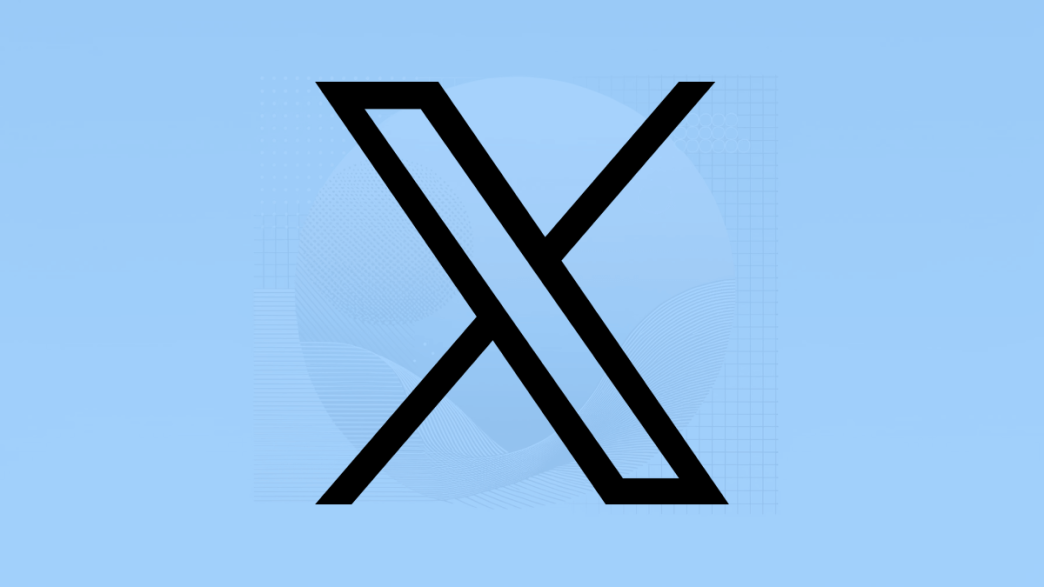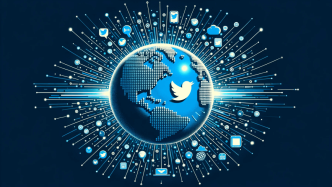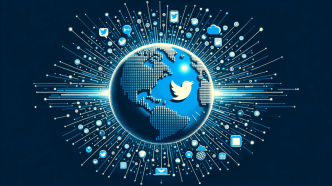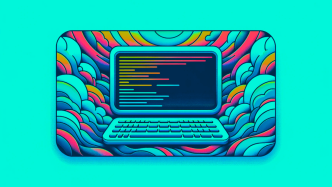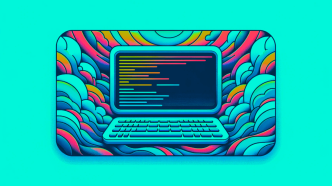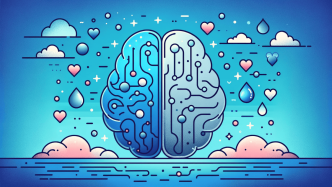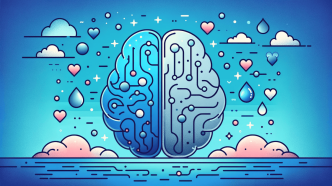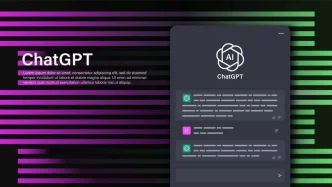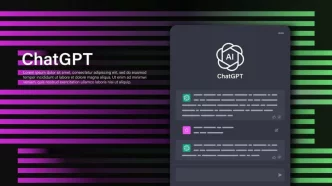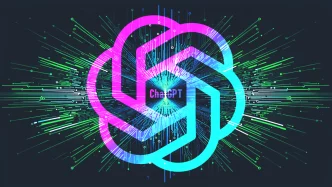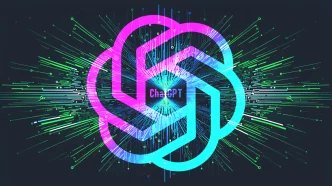I’m not looking to make a habit out of writing about the Terms of Service of companies; first, it was Brave, then Zoom, and I could have written about Microsoft, but Mozilla has taken care of that for me. And then there is AWS, which opts you in by default as opposed the other way around. It’s all happening in real-time.
Now, as to why the X/Twitter new terms are interesting, it’s actually pretty simple. Elon has taken a lot of radical steps to build a fortress around X, to make it as isolated as possible from the outside world (cough, scrapers), but now that he got xAI going for him – it only makes sense that he’d use X as a source of data that technically only he has access to (highly unlikely, bots still rummage the platform like the plague).
Wasn’t Elon the one who said that Microsoft used Twitter’s data illegally and that he wanted to bring them to court? It’s funny how that works because now you’re going to be working for Elon Musk, and he does not plan to pay you, and he certainly does not plan to ask for your permission to use your content this way.
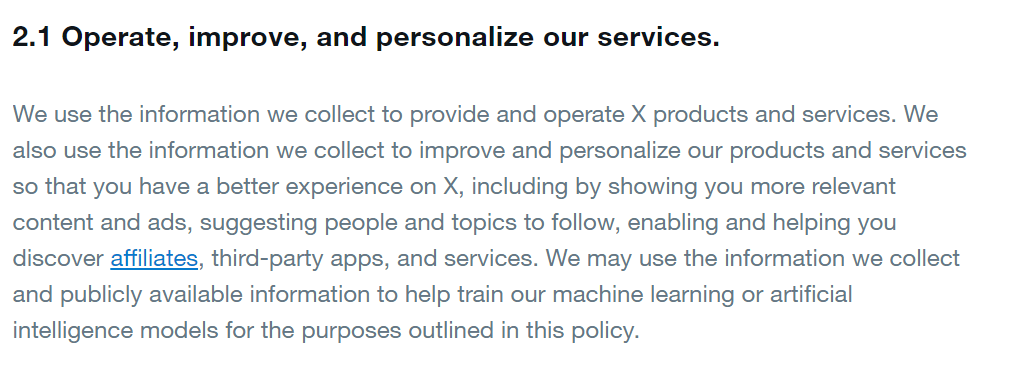
The part that interests me the most is that just recently, Elon made a tweet in which he said that:
If you’re a journalist who wants more freedom to write and a higher income, then publish directly on this platform!
But what he is really saying is, “Come and publish interesting information exclusively on X so that we can use it for our subsidiary companies and train our models on it!”.
How unlikely is it that the endgame here is to merge X Corp together with xAI Corp down the line? It even says on the xAI homepage:
We are a separate company from X Corp, but will work closely with X (Twitter), Tesla, and other companies to make progress towards our mission.
If Elon is committed to AI and the big bottleneck is going to be data quality and uniqueness, yeah – I don’t think he’s going to think twice about building a drip feed for xAI.
What do the updated terms mean for you?
Here’s the kicker: based on these AI-assigned definitions in the updated terms, your access to certain content might be limited, or even cut off. You might not see certain tweets or hashtags. You might find it harder to get your own content seen by a broader audience. The idea isn’t entirely new; we’ve heard stories of shadow banning on Twitter before. But the automation and AI involvement are making it more sophisticated and all-encompassing.
This shift isn’t just about Twitter. Imagine this methodology expanding across the entire internet. Imagine if your “definitions,” determined by AI, controlled not only what you could see on Twitter but also what search results appeared for you on Google, or which news stories showed up in your Facebook feed.
It’s not that the internet has fewer pathways or offramps; it’s just that you might not see them all. They are hidden or revealed based on your AI-defined identity. So while the internet remains vast and expansive, your individual experience of it could become very narrow, indeed.
What makes this change particularly eye-catching is that Elon Musk, who has had his say about Twitter in the past, once showed concern over third-party organizations using Twitter data to train their own AI systems. He argued that it wasn’t ethical. Now, Twitter itself has decided to do just that. So, is it a case of ‘do as I say, not as I do’? That’s for you to decide.
In short, Twitter is no longer a universal experience but a personalized realm defined by AI algorithms. What we should really be asking ourselves is, are we okay with this AI-driven, highly customized yet restrictive internet experience? It’s not a change confined to Twitter; it’s a glimpse into what could be the new normal for the internet.

